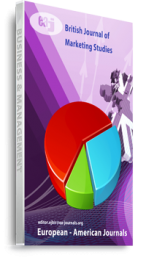Strong branding has become a very important factor that influences consumer’s perceptions of a brand. Success in branding can enhance the performance of Tourism. This arises from understanding and managing the brand correctly to produce strong attributes that influence consumers when making their choices. Considering the increasing competition in the tourism industry, more governments have realized that branding can enhance Tourism and become a powerful tool to differentiate their countries and obtain competitive advantages by improving their image in tourism. The results have shown that the branding campaign in tourism is generally well developed and the image promoted corresponds in great measure with the one perceived by consumers. The value of this research concentrates on the fact that branding can enhance the performance of tourism in any Country. As a relatively new concept, branding still lacks empirical academic research. This study offers an original insight into branding as a tool in enhancing Tourism performance through image analysis. This research focuses on the importance of these dimensions (brand awareness, Tourism brand loyalty, Tourism brand image and perceived quality in enhancing the performance of the tourism sector in Rwanda ) of customer-based brand equity on consumer’s perceptions of a Tourism brand. This is based on the assumption that all these dimensions of customer based-Tourism brand equity have had influence on consumer’s perceptions of the Tourism brand. However, this project aimed to find out which among these three dimensions (brand image, brand loyalty and perceived quality) appears to have the least brand equity in Tourism with respect to Tourism brand awareness, Tourism brand image, and perceived quality and Tourism brand loyalty. A structured questionnaire was constructed to provide answers to research questions. In this study, over fifty questionnaires were distributed, and all of the questionnaires were realized. Despite the academic attention to branding in Tourism, there seems to be no clear path for authorities to follow in establishing their destinations as distinctive and strategic brands, A comprehensive research framework with both qualitative and quantitative methods was used to suggest and assess these brand elements, meanings, and assets for both supply and demand sides of the market.
Keywords: Branding, Development, Marketing, Performance, Tourism

